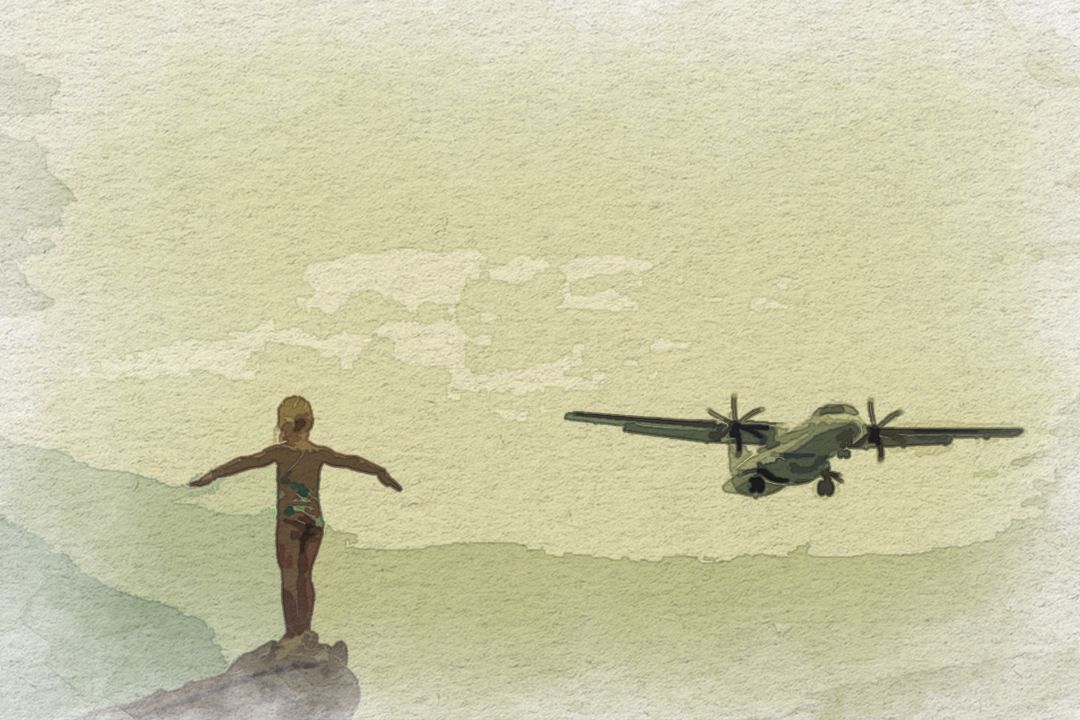The Power of Maybe

PFC Airlines are Plain to See and What Dreams are Made Of
Once, in a quaint little town bordered by whispering meadows and dreams woven into the very air, there lived an inventor named Alexander. His house was a haphazard collage of gears, springs, and contraptions that whirred day and night. Neighbors often peered over their fences, bewildered by the cacophony of sights and sounds emanating from Alexander's curious abode. Amongst all his peculiar creations, one stood out: a machine designed to fly, not unlike the aircraft that soared high above, but intended for just a single passenger, an individual's personal escape into the clouds.
I have not failed. I've just found 10,000 ways that won't work.
— Thomas Edison (1847-1931)
Day after day, Alexander toiled, his hands stained with grease, his face smudged with soot. Each failure, a comet streaking across the sky of his imagination, burned brightly and then faded, leaving behind a trail of knowledge. The town's folk chuckled among themselves, but Alexander's spirit was a bonfire that no amount of skepticism could douse. He was not deterred by his numerous unsuccessful attempts, for each one brought him closer to his dream, a dream to dance among the stars.
In the same town lived a young girl named Sophia, who harbored dreams that stretched even beyond Alexander’s skyward aspirations. Sophia spent her afternoons atop a tall rock, her small arms outstretched as if she could snatch a cloud from the sky and wrap it around her like a shawl. Her imagination was a canvas as vast as the cerulean expanse above her.
Sophia's dreams were vivid tapestries of color and sound. She dreamt of lands where the trees whispered secrets and rivers sang lullabies. The townspeople often dismissed her tales as the wild ramblings of an overactive mind. But Sophia knew there was a profound truth hidden within her nocturnal adventures—a truth about the limitless potential of the heart and mind.
One evening, as twilight painted the sky in hues of fiery orange and gentle purple, Sophia found herself gazing through the lens of an old, rusted camera, a relic Alexander had discarded in one of his fits of creative frustration. Through the viewfinder, the world was transformed. The trees were not merely green but a myriad of shades dancing with the light. The rock she stood upon was not just a jagged monolith but a silent guardian of countless stories.
The camera introduces us to unconscious optics as does psychoanalysis to unconscious impulses, ...
— Walter Benjamin (1892-1940)
In this moment, Sophia was the beholder of unseen wonders, the mundane touched by a spark of the extraordinary. Her laughter mingled with the rustling leaves, for she had discovered a new dimension of reality, one that Alexander's mechanical mind had missed in his pursuit of the practical.
Alexander observed her from his cluttered workshop, the corners of his mouth turning upward in a rare smile. He realized that in his relentless chase for technical success, he had overlooked the beauty of the unpredictable, the illogical, the magical. His dream of flight had become an anchor, and in a twist of irony, it was Sophia's groundless dreams that now lifted him.
In the subsequent days, Alexander's approach to his inventions changed. He allowed himself to be guided by the absurd, the nonsensical whisperings of his own dreams, fueled by Sophia's wild tales. The townspeople watched in astonishment as the once-solemn inventor laughed at his failures, finding joy in every explosion of sparks, every whir of a misaligned gear. The laughter was contagious, and soon, it wasn't just Sophia who saw the charm in the skies—the whole town began to look up with a sense of wonder.
Through a fusion of Alexander's renewed spirit and Sophia's dreams, a day came when the machine finally stirred to life without sputtering to a halt. The town held its breath as Alexander and Sophia climbed aboard. With a whirl and a leap, the contraption took off, not with the grace of the aircraft that inspired it, but with a charm all its own, a flying machine powered by dreams and stitched together with the threads of laughter.
And as they soared above the town, leaving trails of giggles in their wake, Sophia shouted down to the awestruck onlookers, “See the world through dreams, and you’ll fly without wings!” Alexander, his hair tousled by the wind, could only nod in agreement, his heart as light as the air that carried them.
In the bustling town of dreams and aspirations, there lived a multitude of characters, each carrying their own hopes and fears, dreams and disappointments. Among them was a young man named Daniel, who spent his days wandering the cobblestone streets, his mind lost in the labyrinth of his own thoughts. Life had been a series of twists and turns for Daniel, a journey marked by failures and setbacks.
I have not failed. I've just found 10,000 ways that won't work.
— Thomas Edison (1847-1931)
Yet, despite the challenges he faced, Daniel remained undeterred. He was a firm believer in the power of perseverance, a disciple of Edison's philosophy that failure was merely a stepping stone on the path to success. With each setback, Daniel gleaned valuable lessons, refining his approach and inching closer to his goals.
Daniel's dream was simple yet profound: to create a haven for those who had lost their way, a sanctuary where broken hearts could find solace, where shattered dreams could be mended. He poured his heart and soul into his vision, tirelessly working to turn his dream into a reality.
But as the days turned into weeks, and the weeks into months, Daniel found himself grappling with doubt and disillusionment. The road to success was fraught with obstacles, and at times, it seemed as though his dream was slipping through his fingers.
Like all dreamers, I mistook disenchantment for truth.
— Jean-Paul Sartre (1905-1980)
Daniel's faith wavered, his once-bright spirit dimmed by the shadow of uncertainty. He began to question the validity of his dream, wondering if perhaps he had been chasing a mirage all along. But deep down, beneath the layers of doubt and despair, a flicker of hope remained, a tiny ember waiting to be fanned into flame.
It was during his darkest hour that Daniel encountered a stranger named Elena, a woman whose spirit burned as brightly as the sun. Elena had a story to tell, a tale of resilience and redemption, of triumph over adversity. Her words were like a balm to Daniel's wounded soul, offering him the courage to persevere in the face of uncertainty.
Dreams are often most profound when they seem the most crazy.
— Sigmund Freud (1856-1939)
Inspired by Elena's unwavering belief in the power of dreams, Daniel renewed his resolve to pursue his vision with renewed vigor. He refused to be swayed by the naysayers or deterred by the challenges that lay ahead. For he knew that beneath the veil of uncertainty, his dream awaited, a beacon of hope in a world shrouded in darkness.
And so, with his heart ablaze with determination, Daniel set forth on his journey once more, his eyes fixed firmly on the horizon. For he knew that no matter how many obstacles he encountered along the way, his dream would always be within reach, a guiding light in the darkness, a testament to the power of perseverance and the triumph of the human spirit.

The planksip Writers' Cooperative is proud to sponsor an exciting article rewriting competition where you can win part of over $750,000 in available prize money.
Figures of Speech Collection Personified
Our editorial instructions for your contest submission are simple: incorporate the quotes and imagery from the above article into your submission.
What emerges is entirely up to you!
Winners receive $500 per winning entry multiplied by the article's featured quotes. Our largest prize is $8,000 for rewriting the following article;

At planksip, we believe in changing the way people engage—at least, that's the Idea (ἰδέα). By becoming a member of our thought-provoking community, you'll have the chance to win incredible prizes and access our extensive network of media outlets, which will amplify your voice as a thought leader. Your membership truly matters!


